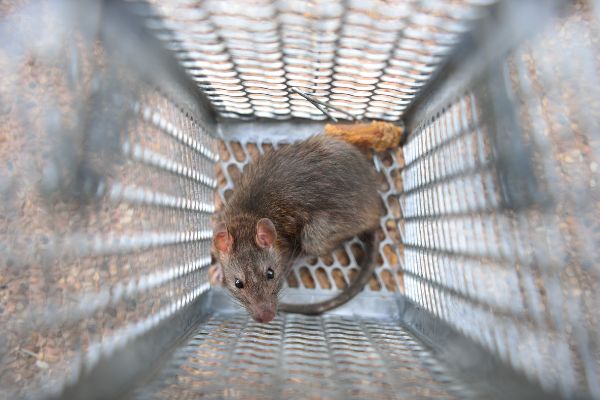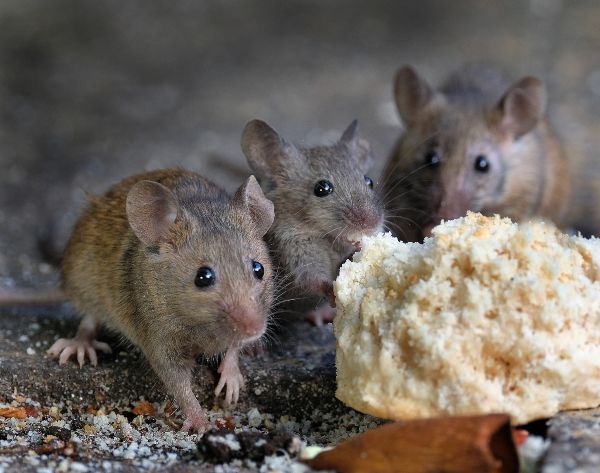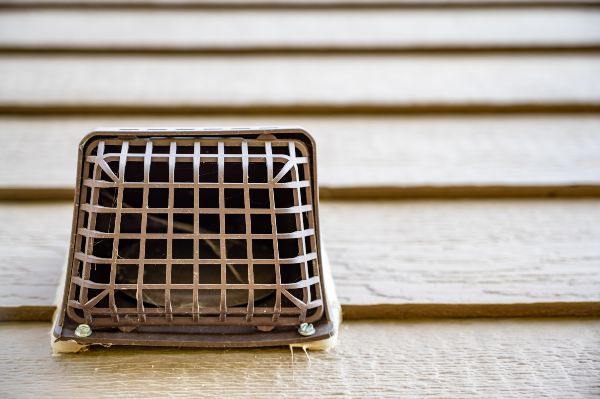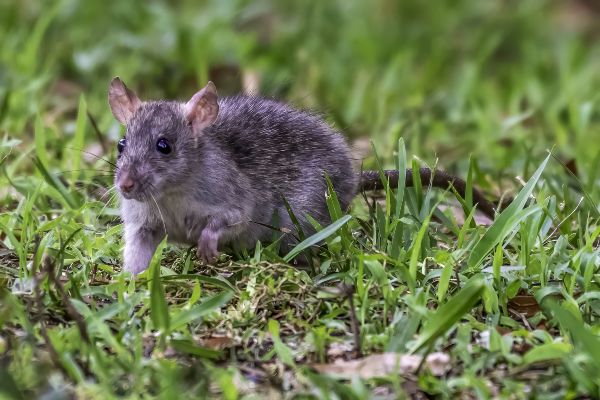Rodent Learning Center
Rodent Exclusion
1. How Does Rodent Exclusion Work?
Exclusion is the best form of rodent prevention, surpassing traps and pesticides. This method involves sealing all potential openings that rodents could use to gain access to your property, such as cracks, gaps, and exposed openings. By using exclusion methods, you can eliminate these vulnerabilities by installing vent covers, chimney and plumbing caps, door sweeps, and replacing weather stripping. A technician can be hired to implement professional rodent exclusion tactics, but you can also take measures yourself, including:
- Inspecting your property’s foundation
- Sealing entry points
- Replacing damaged insulation
- Installing wire mesh over openings
Rodent exclusion is an eco-friendly and mess-free form of rodent prevention that can prevent an infestation before it starts. By avoiding the use of traps or pesticides, you can avoid having to clean up rodent mess afterwards. Rodent infestations can pose various risks, so exclusion will save you frustration and keep your property safe.

2. How Do Rats and Mice Get Inside?
Mice and rats are attracted to the same things as any warm-blooded creature: food, shelter, and warmth. If they find access to these in your home or business, they will stay as long as possible. To deter rodents, you should prevent them from getting inside by sealing all possible entry points, avoiding clutter in and around your property, cleaning up food spills, and inspecting regularly for signs of rodents.
Rats and mice can enter through small spaces such as cracks and crevices. They are scavengers and will eat almost anything they can find, including:
- Food crumbs
- Unsealed garbage
- Meat
- Pet food
- Cheeses
- Fish
- Nuts
- Grains
- Vegetables
- Fruits
- Seeds
Rats have a larger appetite and will eat almost anything, while mice are primarily omnivores.

3. Keeping Rats Away in Illinois
To prevent a rodent infestation in your Illinois property, taking preventative measures is crucial. Rats and mice seek shelter, warmth, and food, so it’s essential to ensure that your property is not attractive to them. To rodent-proof your property, you can:
- Seal any cracks and crevices around the home
- Eliminate moisture problems
- Securely store food
- Limit potential nesting materials.
To keep rats and mice away from your home, make it difficult for them to enter by sealing all possible entry points, as discussed in our excerpt on exclusion. You should also address any leaks or moisture issues quickly, as these can also attract rodents. Proper food storage is another important factor, as rodents are naturally drawn to food. Additionally, limiting clutter in basements, attics, and other areas can prevent rodent nesting. While store-bought repellents may repel some mice, they’re often ineffective, so making your property an unwelcome space for rodents is the best approach.

4. Keeping Rats out of Your Yard
Rodents can quickly spread from your yard to your home. To keep rats and mice away from your home’s exterior, it’s crucial to take necessary measures to secure your yard. This can include:
- Securing garbage bins
- Pruning trees
- Keeping wood piles off the ground
- Ensuring sheds and outdoor structures are in good repair
Since rodents are always looking for a safe place to shelter, they usually take up residence in your yard before moving inside your home. This can be in woodpiles, gathered yard waste, sheds, or even cars.
During cold weather in Illinois, rodents may find a warm place to shelter in the engine compartment of your car. If you smell a foul odor coming from your air vents or find droppings on the floor, it may be a sign that there are rats or mice under your hood. To keep rats out of your car, you can place deterrents like cedarwood or mouse traps inside the space, or keep the hood propped open when not in use to keep it cold.

5. When is Rodent Season in Illinois?
A rodent infestation can be a daunting issue to deal with, especially when compared to smaller pests like ants and flies. However, taking preventative measures before rodent season can save you time, energy, and frustration. Terminix Anderson recommends scheduling annual rodent control as early as August. This will allow you to address any potential issues before the weather cools down and rats and mice start searching for a warm shelter.
Rodent season varies depending on location. In Illinois, it occurs between September and late October, as that’s when the temperature drops and rodents start to seek a safe and warm place to reside for the winter. Houses offer everything rodents need: warmth, safety, and proximity to food. Therefore, it’s crucial to take steps to prevent rodents from infiltrating your home. Starting early and taking preventative measures is the most effective way to deal with potential rodent infestations.

6. Does Natural Rodent Repellent Work?
Homeowners facing a rat or mouse problem may consider natural or DIY pest control solutions as an alternative to professional services or pesticides. While certain natural rat repellents can help to some extent, they are not a reliable way to completely eradicate an infestation. It’s best to consult with a professional exterminator to determine the most effective method of pest control.
The effectiveness of any natural mouse repellent will vary based on the area of vulnerability and the scope of the infestation. Some homemade solutions include:
- Essential oils like peppermint
- Eucalyptus, lemon or citronella
- A mixture of equal parts ammonia and vinegar
- Fragrant foods like hot sauce, garlic, onion, or coffee grounds
However, when faced with an existing rodent infestation, these natural remedies may not be enough. For reliable and thorough rodent control, it’s best to seek help from a professional exterminator like Terminix Anderson’s expert rodent exterminators.



